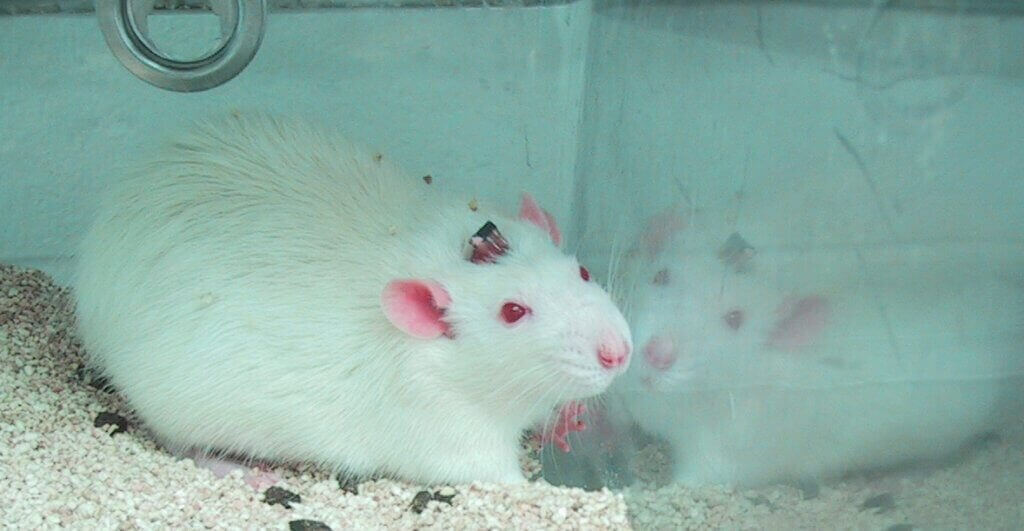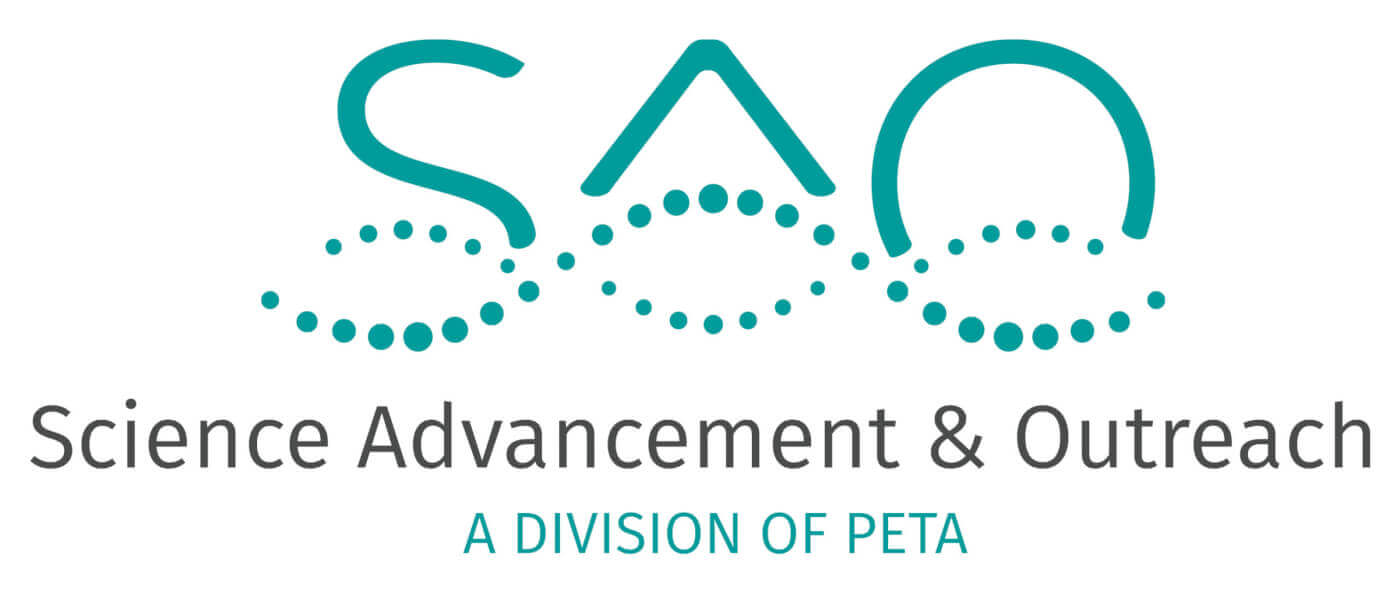Reflections
Thoughts from SAO on the current state of animal use in biomedical research.

Exposing the Gaps: How the 3Rs Fail to Protect Animals in Research →
Recently, the 3Rs have faced significant criticism for their failure to prevent harm to animals. This is due to the framework’s narrow focus on procedural ethics rather than addressing broader systemic and moral questions surrounding animal experimentation.

The Psychedelic Revolution Will Require Human-Relevant Models →
In August, the U.S. Food and Drug Administration (FDA) declined to approve MDMA-assisted therapy for the treatment of post-traumatic stress disorder (PTSD).1 The agency cited insufficient data and requested that Lykos Therapeutics, the company seeking approval, conduct an additional clinical trial to thoroughly assess the drug’s safety and efficacy.1 This requirement could add years to the approval process and cost millions of dollars.
Why We Haven’t Cured Cancer Yet →
“Cancer” is a general term for over 200 different diseases, each with unique causes and behaviors. An estimated 53.5 million people lived with cancer in 2022,1 which means there were 53.5 million different cancers that same year. Cancer stems from one’s own cells, and each type can be as individual as people are, so two patients may respond differently to the same treatment regimen.
Advancing Medical Training by Choosing the Right Simulation Models →
Medical education for physicians encompasses various skill levels and sets, including training for undergraduate medical students, physician residents, and graduate fellows and continuing education courses for practicing physicians.
The Hidden Impact of Housing: Transparent Reporting Matters →
The accurate and transparent reporting of research methods is among the basic scientific principles that allow investigators to assess, replicate, and build on published research. However, information regarding the housing conditions to which animals are subjected during a study is usually absent.
 ©️ iStock.com/z_wei
©️ iStock.com/z_weiThe Contradictions of Animal Experimentation →
What do people who are against experiments being conducted on animals and many of the people who conduct them have in common? Both are apparently against experiments on animals—some species of animals, at least.
 ©️ iStock.com/eyesfoto
©️ iStock.com/eyesfotoAdvancing Surgical Education: Embracing Ethical and Effective Animal-Free Training Models →
The erroneous but entrenched belief that animal models are acceptable and adequate for teaching surgical skills is one of the greatest barriers to transitioning away from using them in medical training. The goal of surgical simulation training is to use the most human-relevant models available to provide trainees with the optimal opportunity to transfer acquired skills to the operating room.

Advancing Cephalopod Welfare: A Call for Comprehensive Guidelines →
Cephalopods, including octopuses and cuttlefish, exhibit remarkable cognitive abilities, demonstrating traits such as problem-solving, tool use, and even delayed gratification, which is viewed as a manifestation of intelligence in animals.

NIH Follows PETA Scientists’ Recommendations for Boosting Non-Animal Research →
In our work to modernize science policy within the National Institutes of Health (NIH) to better support the use and uptake of non-animal research methods (also known as “new approach methodologies” or “NAMs”), the Science Advancement & Outreach (SAO) division repeatedly responds to NIH’s requests for information on these issues and sends letters to the agency’s leaders with our recommendations.

Translatability: A Medical Student’s Perspective →
The question “Will this preclinical animal model translate to future clinical research?” is one that I ponder every day now when assessing the latest research on a variety of medical topics. But this development is very recent.

Addressing Inadequate Pain Relief for Animals Used in Laboratories →
Untreated or mistreated pain in laboratory animals raises significant scientific and ethical concerns in biomedical research. International animal welfare laws and guidelines have been established to minimize pain in animals, but adequate pain relief is often withheld from laboratory animals.

SAO x WC12 →
Later this month, PETA’s Science Advancement & Outreach (SAO) division and some of our colleagues will be taking over Canada. Well, we’ll have a notable presence at the 12th World Congress on Alternatives and Animal Use in the Life Sciences in Niagara Falls, Canada, that is!

Xenotransplantation: Unsafe, Unethical, and Unnecessary →
In 2021, a flurry of articles reporting on the transplantation of pigs’ organs into humans asked whether using animals as spare parts reservoirs could solve the organ shortage. But this line of thinking is as unnecessary as it is unethical and unsafe.

Can an Animal Kept in a Cage Be a Reliable Model of Human Disease? →
Studying animals in a setting closer to their natural environment may make the results more applicable to animals in nature, but it won’t help overcome the inherent and fundamental differences between species, poor internal and construct validity, and poor replicability that are so common in experiments on animals.

Has the National Institutes of Health Lost Its Way? →
The National Institutes of Health’s (NIH) mission is “to seek fundamental knowledge about the nature and behavior of living systems and the application of that knowledge to enhance health, lengthen life, and reduce illness and disability.” Unfortunately, NIH seems to be so focused on the first part of its mission that it has lost sight of the second.

What Does the Passing of the FDA Modernization Act 2.0 Mean for Animals in Basic Research? →
In late 2022, Congress passed the FDA Modernization Act 2.0—a bill introduced by Sens. Rand Paul (R-Ky.) and Cory Booker (D-N.J.), put forth in the House of Representatives by Rep. Vern Buchanan (R-Fla.), and signed into law by President Joe Biden—ending a 1938 mandate that experiments on animals be used to assess the safety and efficacy of new drugs.

The New and Improved Research Modernization Deal →
PETA’s Research Modernization Deal (RMD) is the first comprehensive plan for phasing out the use of animals in experimentation. Originally released in 2018, it has recently been revised and updated to reflect the latest scientific developments and regulatory changes.

The Entire Biomedical Research System Needs an Overhaul →
The pressure to publish in academia has put biomedical research into a full-blown crisis. A system that promotes, publishes, and rewards only positive results leads to sloppy experimental designs, rushed data collection and analysis, reliance on outdated methods, image manipulation in scientific papers, and, in some cases, outright research fraud.





